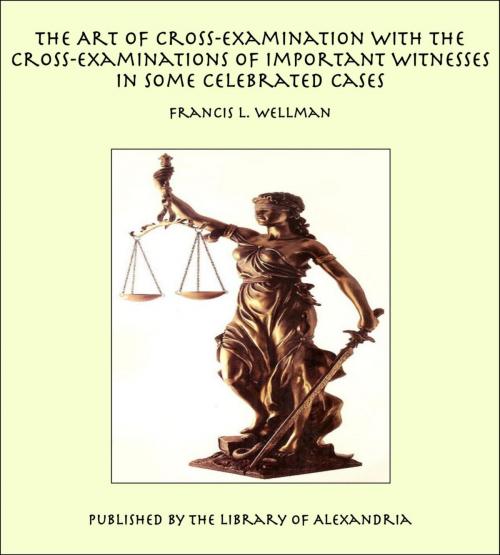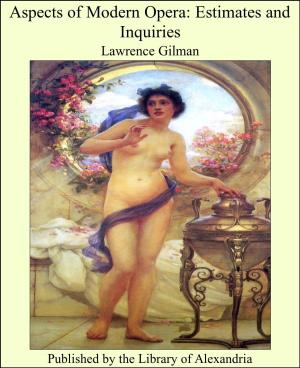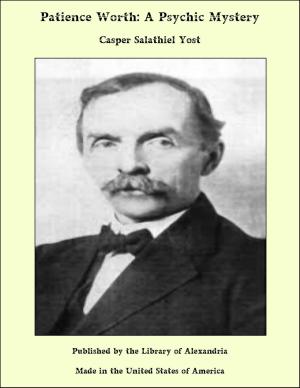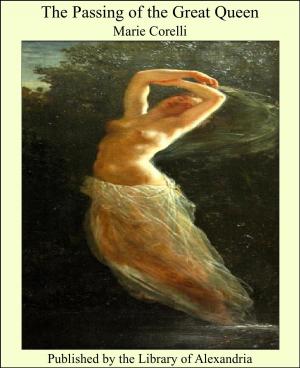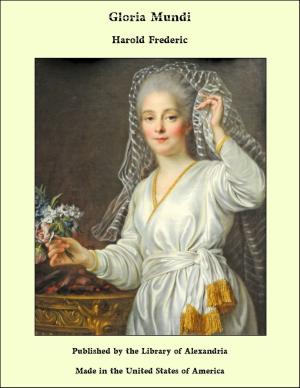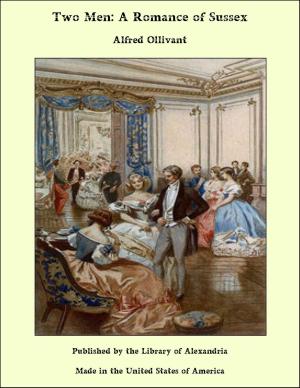The Art of Cross-Examination With the Cross-Examinations of Important Witnesses in Some Celebrated Cases
Nonfiction, Religion & Spirituality, New Age, History, Fiction & Literature| Author: | Francis L. Wellman | ISBN: | 9781465550354 |
| Publisher: | Library of Alexandria | Publication: | July 29, 2009 |
| Imprint: | Library of Alexandria | Language: | English |
| Author: | Francis L. Wellman |
| ISBN: | 9781465550354 |
| Publisher: | Library of Alexandria |
| Publication: | July 29, 2009 |
| Imprint: | Library of Alexandria |
| Language: | English |
The issue of a cause rarely depends upon a speech and is but seldom even affected by it. But there is never a cause contested, the result of which is not mainly dependent upon the skill with which the advocate conducts his cross-examination. This is the conclusion arrived at by one of England's greatest advocates at the close of a long and eventful career at the Bar. It was written some fifty years ago and at a time when oratory in public trials was at its height. It is even more true at the present time, when what was once commonly reputed a "great speech" is seldom heard in our courts,—because the modern methods of practising our profession have had a tendency to discourage court oratory and the development of orators. The old-fashioned orators who were wont to "grasp the thunderbolt" are now less in favor than formerly. With our modern jurymen the arts of oratory,—"law-papers on fire," as Lord Brougham's speeches used to be called,—though still enjoyed as impassioned literary efforts, have become almost useless as persuasive arguments or as a "summing up" as they are now called. Modern juries, especially in large cities, are composed of practical business men accustomed to think for themselves, experienced in the ways of life, capable of forming estimates and making nice distinctions, unmoved by the passions and prejudices to which court oratory is nearly always directed. Nowadays, jurymen, as a rule, are wont to bestow upon testimony the most intelligent and painstaking attention, and have a keen scent for truth. It is not intended to maintain that juries are no longer human, or that in certain cases they do not still go widely astray, led on by their prejudices if not by their passions. Nevertheless, in the vast majority of trials, the modern juryman, and especially the modern city juryman,—it is in our large cities that the greatest number of litigated cases is tried,—comes as near being the model arbiter of fact as the most optimistic champion of the institution of trial by jury could desire. I am aware that many members of my profession still sneer at trial by jury. Such men, however,—when not among the unsuccessful and disgruntled,—will, with but few exceptions, be found to have had but little practice themselves in court, or else to belong to that ever growing class in our profession who have relinquished their court practice and are building up fortunes such as were never dreamed of in the legal profession a decade ago, by becoming what may be styled business lawyers—men who are learned in the law as a profession, but who through opportunity, combined with rare commercial ability, have come to apply their learning—especially their knowledge of corporate law—to great commercial enterprises, combinations, organizations, and reorganizations, and have thus come to practise law as a business
The issue of a cause rarely depends upon a speech and is but seldom even affected by it. But there is never a cause contested, the result of which is not mainly dependent upon the skill with which the advocate conducts his cross-examination. This is the conclusion arrived at by one of England's greatest advocates at the close of a long and eventful career at the Bar. It was written some fifty years ago and at a time when oratory in public trials was at its height. It is even more true at the present time, when what was once commonly reputed a "great speech" is seldom heard in our courts,—because the modern methods of practising our profession have had a tendency to discourage court oratory and the development of orators. The old-fashioned orators who were wont to "grasp the thunderbolt" are now less in favor than formerly. With our modern jurymen the arts of oratory,—"law-papers on fire," as Lord Brougham's speeches used to be called,—though still enjoyed as impassioned literary efforts, have become almost useless as persuasive arguments or as a "summing up" as they are now called. Modern juries, especially in large cities, are composed of practical business men accustomed to think for themselves, experienced in the ways of life, capable of forming estimates and making nice distinctions, unmoved by the passions and prejudices to which court oratory is nearly always directed. Nowadays, jurymen, as a rule, are wont to bestow upon testimony the most intelligent and painstaking attention, and have a keen scent for truth. It is not intended to maintain that juries are no longer human, or that in certain cases they do not still go widely astray, led on by their prejudices if not by their passions. Nevertheless, in the vast majority of trials, the modern juryman, and especially the modern city juryman,—it is in our large cities that the greatest number of litigated cases is tried,—comes as near being the model arbiter of fact as the most optimistic champion of the institution of trial by jury could desire. I am aware that many members of my profession still sneer at trial by jury. Such men, however,—when not among the unsuccessful and disgruntled,—will, with but few exceptions, be found to have had but little practice themselves in court, or else to belong to that ever growing class in our profession who have relinquished their court practice and are building up fortunes such as were never dreamed of in the legal profession a decade ago, by becoming what may be styled business lawyers—men who are learned in the law as a profession, but who through opportunity, combined with rare commercial ability, have come to apply their learning—especially their knowledge of corporate law—to great commercial enterprises, combinations, organizations, and reorganizations, and have thus come to practise law as a business
